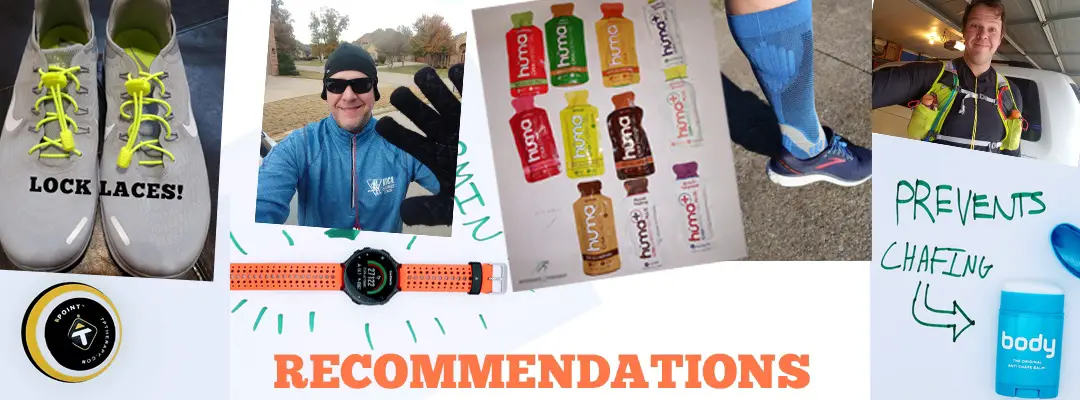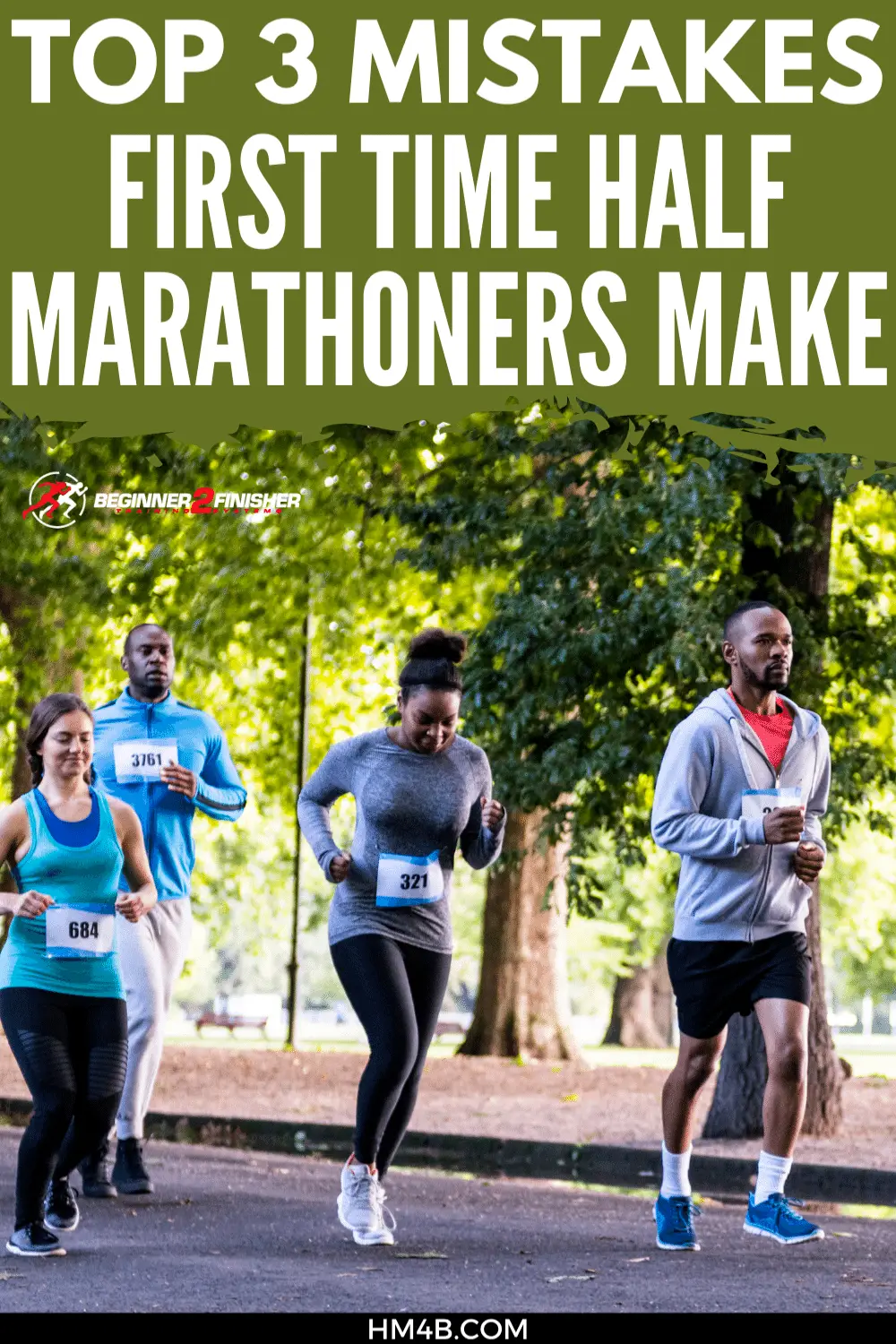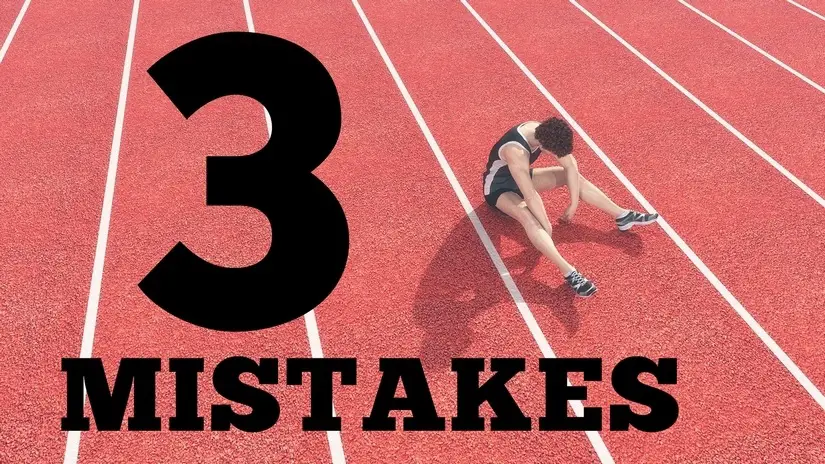 When it’s time to leave the safety and comfort of your 5K and 10K races and move onto bigger treks, it’s important to learn as much as you can prior to jumping in. I’ve seen quite a bit of story that if they would have been told otherwise they might still be running. My running goals and the ones that I send downstream are to sustain an injury-free life of running. Yes, I shoot for personal growth! Yes, I try to break my own PRs! and yes, I try to push myself in running – in a controlled manner. Here are 3 mistakes first time half marathoners make:
When it’s time to leave the safety and comfort of your 5K and 10K races and move onto bigger treks, it’s important to learn as much as you can prior to jumping in. I’ve seen quite a bit of story that if they would have been told otherwise they might still be running. My running goals and the ones that I send downstream are to sustain an injury-free life of running. Yes, I shoot for personal growth! Yes, I try to break my own PRs! and yes, I try to push myself in running – in a controlled manner. Here are 3 mistakes first time half marathoners make:
Not following a training plan
If and only if you have run a half marathon before I will agree with the often heard, “I don’t need a training plan.” Can you finish a half marathon without long-distance training and run the racecourse. Yes, you can! Will it hurt or could you sustain a possible injury – absolutely. Your typical average untrained human was not meant to run for 13.1 miles, while the trained human can run in excess of 26 miles.
There is a reason that if you search for half marathon training plans you get a ton of hits. Marathon training plans are probably in more abundance than half marathon training plans. There are no shortcuts to a half marathon training plan – put in due diligence, train like you’re supposed to, and finish the race after 12 weeks.
When it’s time to leave the safety and comfort of your 5K and 10K races and move onto bigger treks, it’s important to learn as much as you can prior to jumping in. I’ve seen quite a bit of story that if they would have been told otherwise they might still be running. My running goals and the ones that I send downstream are to sustain an injury-free life of running. Yes, I shoot for personal growth! Yes, I try to break my own PRs! and yes, I try to push myself in running – in a controlled manner. Here are 3 mistakes first time half marathoners make:
Related: 22 Running Tips For Absolute Beginners
Quitting after one bad run
All runners at one point in their running career, and quite often as new runners, totally botch a run. If this hasn’t happened to you then you haven’t been running long enough to experience it. Being prepared for this occurrence and how you react to it will determine your fate for all future races. Every day that I run I’m trying to conquer the required daily mileage. Life, however, will throw you curve balls from time to time.
If you feel like you’re about to quit during one of your run sessions follow these strategies:
- Slow down your pace
- Change your running into a run/walk interval such as run 4 minutes walk 1 minute.
- Visualize yourself being flood full of new energy that your body soaks in.
- Close your eyes for a second or two and quell the thoughts of quitting.
- Tell yourself that you’ll slow down after completing the next mile.
If you do end up aborting a run completely, attempt to do one of the following:
- Finish the required time/miles(km) by walking the remainder of your session.
- Attempt to complete your miles(km) later in the day.
- Lastly, if you can’t walk the rest of your session or train later that day, attempt to make up your run on the next day (when it’s a rest day)
Don’t forget even if you completely abort your run and don’t make it up a couple of runs like this won’t ruin your overall training performance. It’s the total weekly mileage along with the long-run sessions that will help you get to the finish line after 12 weeks of training. Grit and determination more than any other factor is what will get you to the finish line on race day.
If you’re unsure about what caused your bad run, read my article I wrote about 5 questions to ask yourself after a bad run.
Unrealistic Goals
Setting a goal and then writing it down are two of the most important aspects of completing a goal. Can you guess what the third criterion is for setting accomplishable goals? Make sure the goal is realistically accomplishable. In other words, don’t leap too far at first, set an achievable goal as a step to get there. I’m not saying to chunk down your goal, I’m just saying that know your current capabilities and maybe add a 10% increase in your capability.
For example, let’s say the average pace of your last 3 5K races was around 10:00 min/mile (6:15 km/mile) which will put your half marathon total race time at 2 hours and 13 minutes. The 2 hours and 13 minutes are a realistic finish time for a half marathon race. If you instead wanted to finish a half marathon at 1 hour 40 minutes with your 5k average paces as stated, this scenario is getting closer to an unrealistic goal at your current fitness level.
First-time half marathon racers should be happy with just finishing a race. Trying to shoot for a specific finish time should be second. After completing the race then start to improve your pace slowly and train yourself towards a sub 2 hour half marathon race. Knowing where your limits are and how far you can push them will help you to sustain a running career without injury.
Overtraining and limited recovery will be the fastest route towards sustaining an injury. Don’t forget that in 2017, 75% of the runner sampled, reported some type of running injury (10 strategies to help you dodge your next running injury ).
Bonus: sometimes adjustments are required
I’m going to let you in on a little secret most of the training schedules floating around on the internet are cookie cutter. For the majority of runners finding one of these training schedules and following it as closely as possible will get you the results you desire. However, sometimes, the second set of eyes is needed to help you unravel your running ailments and issues.
A running coach can help see things and analyze things that you can’t see or are unaware of such as improper running form. Sometimes your running partner can just as easily record your running for a few minutes and see what might be causing the problem. If you’re having problems with kinks or aches in your legs or feet, you can probably rest a couple of days and then try to run again. if you still experience the same ache you might need to take a longer break from running (i.e. 1 week + ).
Another solution is to go see a sports physical therapist so they can get a closer look into what’s going on. Although there is no substitute for a good sports physical therapist and I recommend one over all other solutions, this book has a great resource for running specific injuries and possible solutions. (Build Your Running Body: A Total-Body Fitness Plan for All Distance Runners, from Milers to Ultramarathoners—Run Farther, Faster, and Injury-Free)
Get help from any of the following people:
- A running coach (certified preferably)
- A running club
- Running partners
- Running forums/websites
Related: Most Common Running Mistakes You Must Avoid At All Costs!
| Help support me and subscribe to my YouTube channel. YouTube video - 30 ways to make your runs less painful! Coach Scott's Credentials:
|
To sign up for a FREE half marathon training schedule, log sheet, and pace predictor CLICK HERE.

Recommended gear for runners
Connect with me:
| facebook.com/BeginnerToFinisher/ |


3 thoughts on “Top 3 mistakes first time half marathoners make”